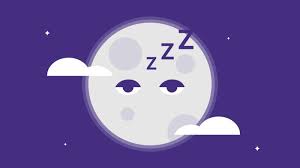Sleeping with your eyes open is a rare phenomenon and generally not recommended due to potential harm to your eyes and overall health. However, if you’re curious about how some people can manage it, this guide will delve into the methods, potential risks, and reasons behind this unusual ability.
Understanding the Concept
Sleeping with your eyes open, also known as nocturnal lagophthalmos, is a condition where the eyelids do not fully close during sleep. This can be due to various factors including facial nerve issues, anatomical differences, or other underlying health conditions.
Methods to Sleep with Your Eyes Open

While not common or advisable, here are some techniques that might help someone attempt to sleep with their eyes open:
- Training and Practice:
- Relaxation Techniques: Learn to relax your facial muscles and maintain a steady gaze.
- Focus on a Fixed Point: Try to focus on a single point while allowing your mind to drift into a relaxed state.
- Hypnosis and Meditation:
- Self-Hypnosis: Some people use self-hypnosis techniques to induce a state of sleep while maintaining eye openness.
- Meditative Practices: Advanced meditation can sometimes lead to a state where the mind is at rest while the eyes remain open.
- Sleep Disorders:
- Understand Underlying Conditions: Conditions like sleep apnea or REM sleep disorders might cause unintentional eye opening during sleep. Consult a healthcare provider for proper diagnosis and treatment.
Risks and Considerations
Attempting to sleep with your eyes open can have several potential risks:
- Eye Irritation: Exposure to air and light can cause dryness, irritation, and potential damage to the cornea.
- Poor Sleep Quality: Keeping your eyes open can disrupt normal sleep patterns, leading to fatigue and other health issues.
- Increased Risk of Infections: Constant exposure without proper eyelid closure can increase the risk of eye infections.
Alternatives and Solutions
Instead of trying to sleep with your eyes open, consider these alternatives:
- Proper Sleep Hygiene:
- Create a Relaxing Environment: Ensure your sleep environment is conducive to rest by keeping the room dark, quiet, and cool.
- Follow a Routine: Maintain a consistent sleep schedule and bedtime routine to improve sleep quality.
- Seek Medical Advice:
- Consult an Eye Specialist: If you suspect nocturnal lagophthalmos or any other sleep disorder, seek professional medical advice.
- Use Eye Protection: If necessary, use eye masks or lubricating eye drops to protect your eyes during sleep.
Conclusion
While the concept of sleeping with your eyes open is intriguing, it is not advisable due to the potential risks to your eye health and overall well-being. Instead, focus on maintaining good sleep hygiene and seek professional advice if you have any concerns about your sleep patterns.